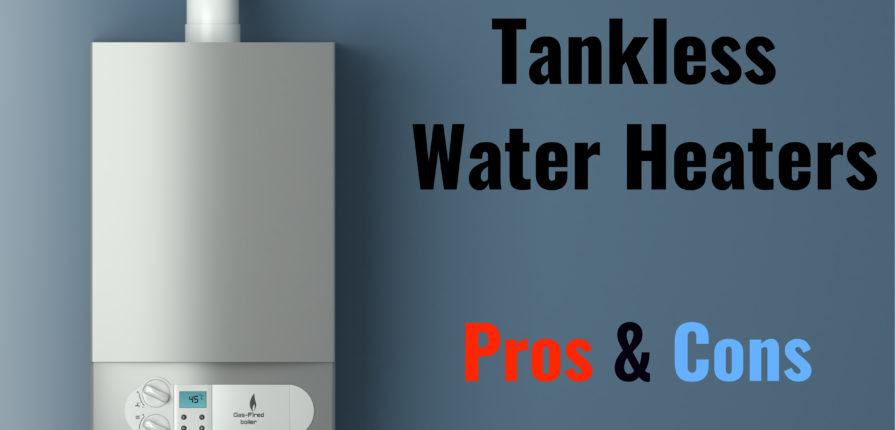Time for a new water heater?
You may be considering a tankless, a.k.a. an on-demand water heating system. And while tankless water heaters can save you energy and take up less space, there are certain things to keep in mind before you make the leap. Tankless water heaters have higher upfront costs and may not produce enough water for your household.
Read on to learn what you need to know before making the switch to tankless water heating.
Pros:
Energy Savings: The number one advantage of a tankless water heater is the energy savings. Tankless water heaters use about 30-50% less energy than traditional tank units since they only heat water when you need it. This is why tankless water heaters are referred to as “on-demand” units. This leads to about $100 savings annually on energy costs.
Continuous Flow of Hot Water: Since tankless water heaters heat the water as it flows through the unit, you will not have to wait for the water to get hot in the storage tank – this continuous flow of hot water can be great for supplying water to a big hot tub or whirlpool. But – keep in mind tankless water heaters may not be able to supply enough hot water if there are simultaneous demands (i.e. filling a bath while running the dish washer). For larger households, you may need a larger, more expensive unit, or two or more tankless water heaters connected in parallel.
Small Size: Tankless units do not have to hold water in a tank, therefore they are much smaller and more compact than traditional water heaters. The smaller tankless units take up very little space and can be mounted on a wall.
Longer Lifespan: In contrast to traditional tank units, which have a lifespan of about 10-15 years, most tankless units last more than 20 years. But, keep in mind that tankless units, just as their traditional counterparts, require proper annual maintenance.
Reduce Risk of Water Damage: Water heater tanks can leak and burst, which can damage property and cause thousands of dollars worth of damage. While tankless water heaters can also leak – they won’t flood your home with 40-60 gallons of water as traditional water heaters can.
Cons:
Upfront cost: The biggest disadvantage of tankless water heaters is the initial cost. One of the reasons for these high upfront costs are due to the special, dedicated sealed vent system that tankless water heaters require. This means that your existing vent system cannot be used and will need to be replaced with a vent designed for your new tankless water heater.
Gas line upsizing: Another factor that many homeowners do not consider is that their existing gas system may not be large enough to accommodate the increased demand of a tankless system. A plumber should come out to assess your current gas line and determine whether upsizing is necessary.
Not Enough Hot Water for Larger Household: Tankless water heaters produce a continuous flow of hot water, but they often can’t produce enough hot water for multiple uses. This can be problematic if you attempt to take a shower while running the dishwasher at the same time. To avoid this problem, you can install a larger unit or multiple units, however this can get expensive.


— 4 Comments —